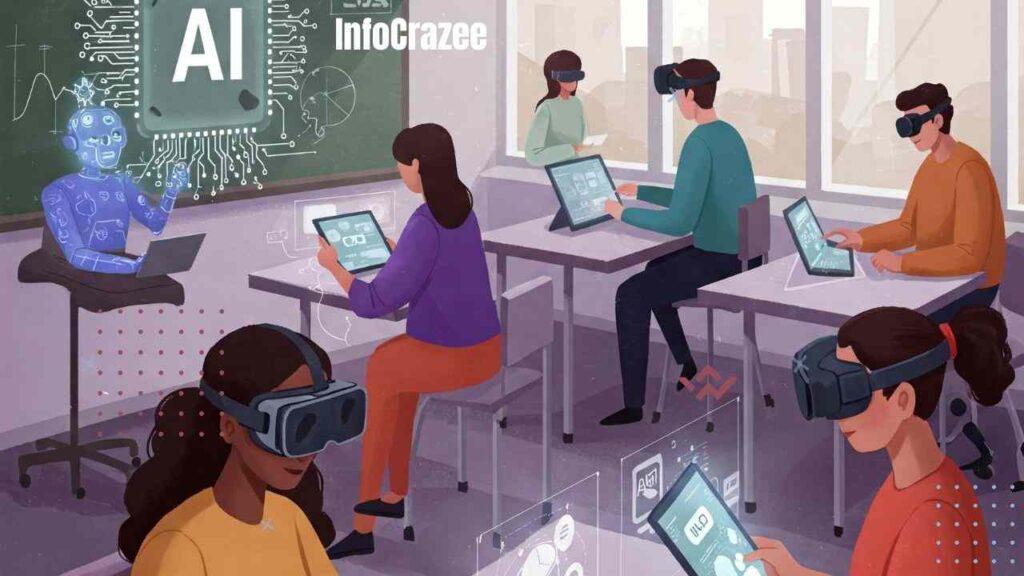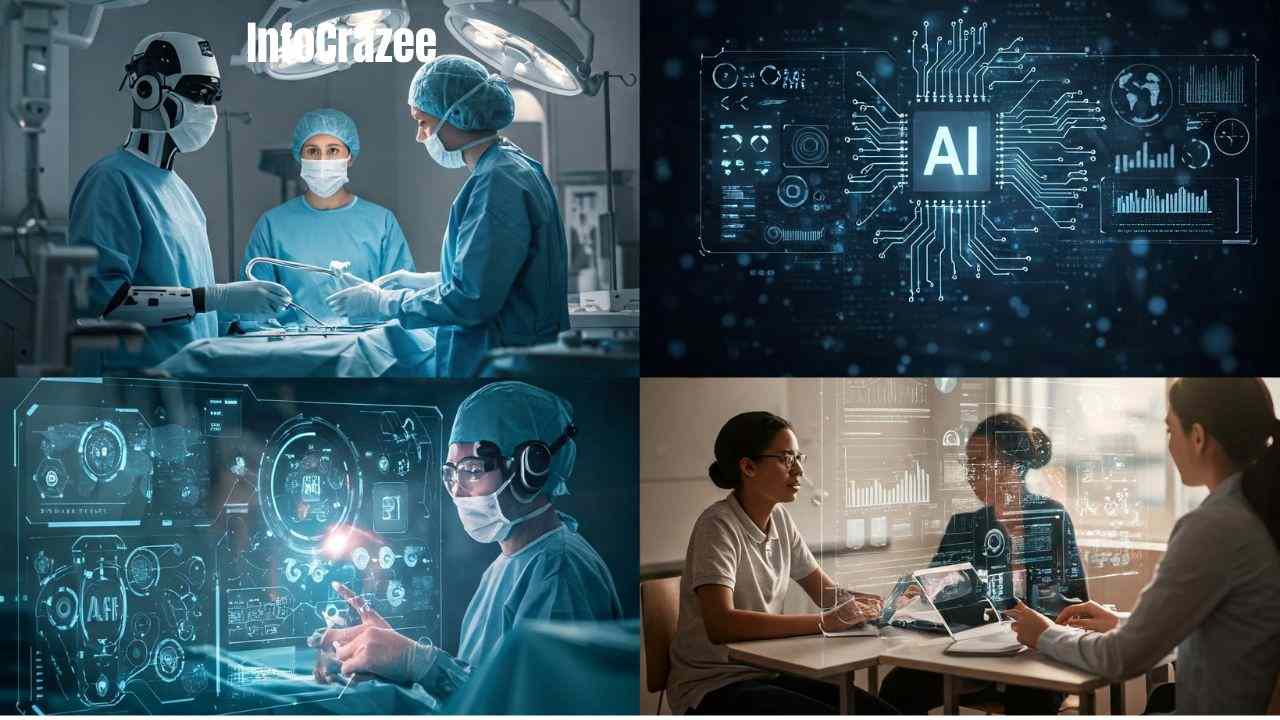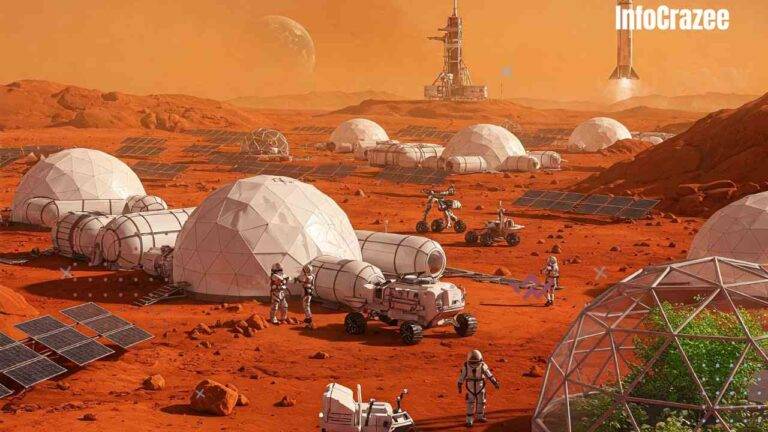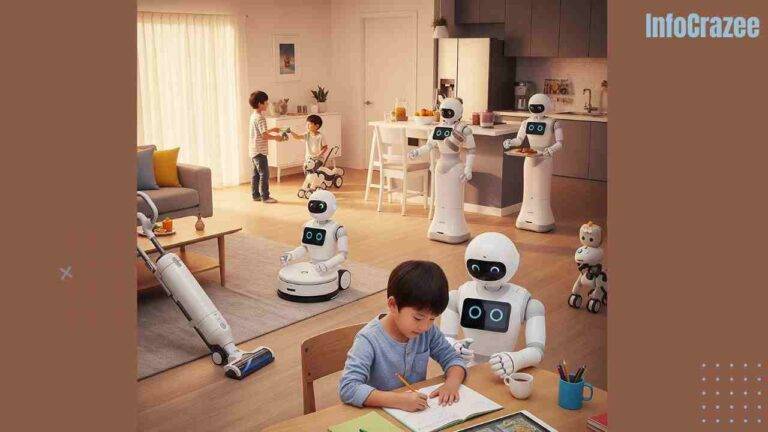The Role of AI in Shaping the Future: How Technology Is Changing Our World
Imagine a world where your doctor predicts your illness before you even feel sick, where your car drives you to work while you sip coffee and check emails, and where your fridge orders groceries when you’re running low. Sounds futuristic, right? Well, thanks to artificial intelligence (AI), this future is closer than you might think.
AI is no longer just something out of sci-fi movies. It’s part of our daily lives, changing how we live, work, and connect with the world around us. Let’s explore how AI is shaping our future—and what it means for you.
What Is AI Anyway?
At its simplest, AI is when machines or computers are designed to think and learn like humans. They can spot patterns, make decisions, and even predict outcomes without being told exactly what to do at every step.
You’ve probably already interacted with AI today without realizing it—maybe when you asked Alexa about the weather or scrolled through personalized Netflix recommendations.
How AI Is Changing Our World
1. Healthcare That Knows You Better
AI is already making huge waves in healthcare. Imagine doctors diagnosing diseases faster and more accurately with AI’s help. Systems can now scan medical images and find tiny problems a human eye might miss.
Real-world example:
IBM’s Watson can read thousands of medical papers and suggest treatment plans for patients with cancer, giving doctors better information to make decisions.
Why it matters:
Faster diagnoses, better treatments, and even personalized medicine tailored just for you could soon become the norm.
2. Smarter Education for Everyone
Gone are the days of one-size-fits-all education. AI can help personalize learning by adjusting lessons based on each student’s strengths and weaknesses.

Real-world example:
Platforms like Duolingo use AI to adapt language lessons depending on how fast (or slow) you’re picking things up.
Why it matters:
Students can learn at their own pace, making education more effective—and a lot less stressful.
3. Safer, Smarter Transportation
Self-driving cars aren’t just a dream anymore. AI is at the heart of making transportation safer, more efficient, and less polluting.
Real-world example:
Companies like Tesla and Waymo are testing AI-powered cars that can recognize traffic signals, avoid obstacles, and even predict what other drivers will do.
Why it matters:
Imagine fewer traffic accidents, shorter commutes, and less stress on the roads.
4. Workplaces Getting an Upgrade
AI is changing how businesses operate. From automating boring tasks to helping managers make better decisions, AI is freeing up humans to focus on the work that really matters.
Real-world example:
Chatbots handle customer questions 24/7, while AI tools help HR teams find the best candidates faster.
Why it matters:
AI can make work more meaningful by taking over repetitive tasks and leaving humans to do what they do best—create, lead, and connect.
What You Can Do to Stay Ahead
The rise of AI might sound a little intimidating. But it’s not about competing with robots—it’s about working alongside them. Here’s how you can stay ready for the future:
- Build Human Skills: Focus on things AI can’t easily replicate like empathy, creativity, leadership, and critical thinking.
- Keep Learning: The future belongs to lifelong learners. Stay curious, take courses, and keep up with tech trends.
- Use AI to Your Advantage: Learn how AI tools can make your life easier, whether it’s automating tasks or analyzing data.
A Quick Reality Check: The Limits of AI
AI is amazing, but it’s not magic. It still has a long way to go when it comes to understanding human emotions, complex decision-making, and true creativity.
Think about it this way: AI can write a news article based on facts, but it can’t capture the heart of a moving human story the way a real journalist can.
So while AI is powerful, humans still have the edge when it comes to heart, soul, and imagination.
FAQs About AI and the Future
Q1: Will AI take over all the jobs?
A: Not exactly. AI will likely automate repetitive tasks, but it will also create new jobs—especially in areas that need creativity, emotional intelligence, and complex problem-solving.
Q2: How can I prepare my career for the AI future?
A: Focus on developing soft skills like creativity, communication, and critical thinking. Also, stay updated on technology trends in your field and learn how to work with AI tools, not against them.
Q3: Is AI dangerous?
A: AI is a tool—it depends on how we use it. Like any technology, it needs careful rules and ethical guidelines. Most experts believe that if we develop AI responsibly, it can improve lives dramatically.
Final Thoughts
Artificial intelligence isn’t just changing the future—it’s shaping it right now. From healthcare and education to transportation and business, AI is opening doors we once only dreamed about. Instead of fearing the changes, we can embrace the opportunities and work alongside AI to build a future that’s smarter, safer, and more human than ever.
At infocrazee, we believe the future is bright—and you’re right at the heart of it. 🌟






